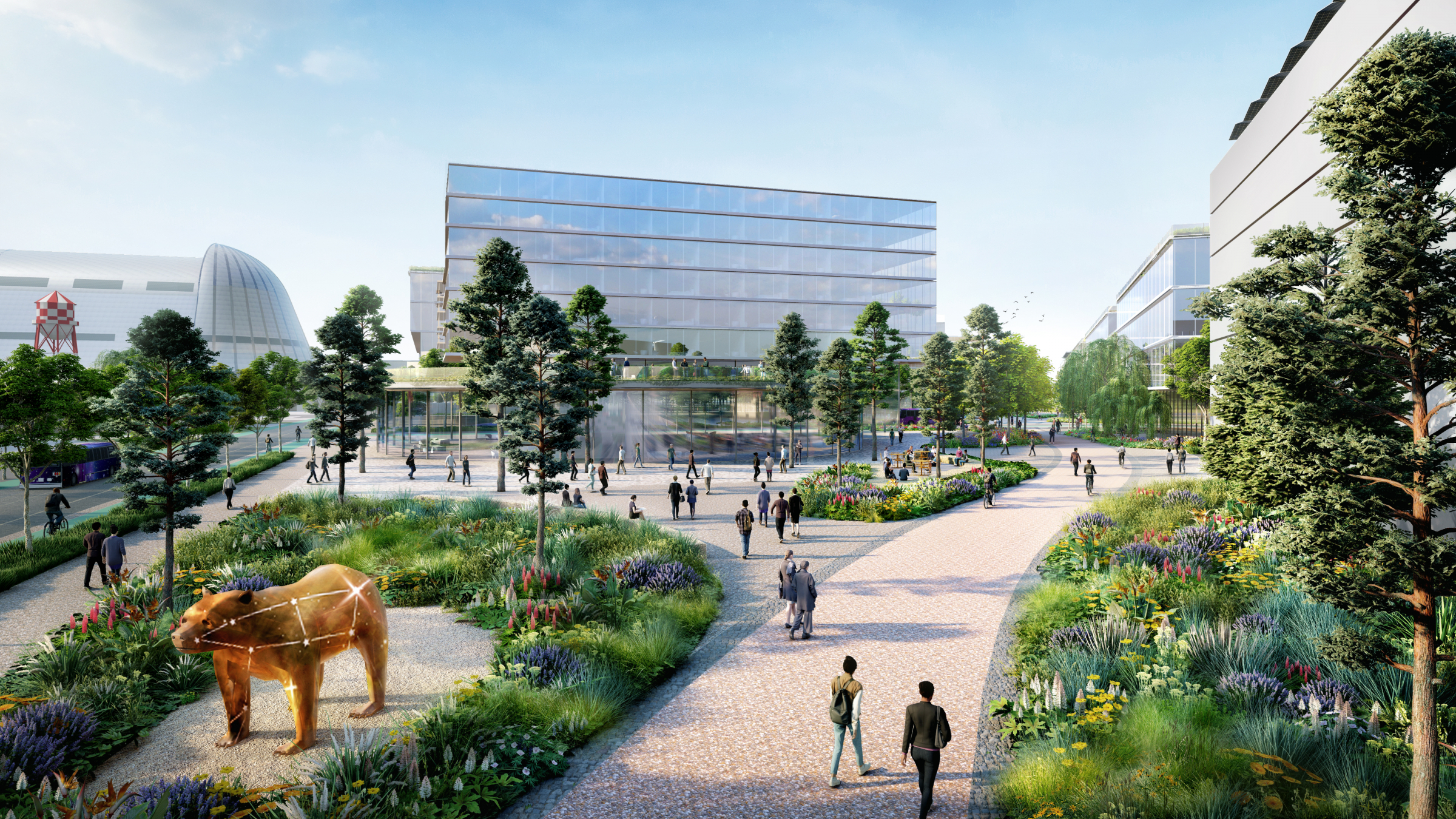Looking to spur innovative ideas and technologies, the University of California at Berkeley is taking early steps to incubate a fleet of aerospace startups at NASA Research Park, even though construction at the site is still several years away.
Last year, UC Berkeley unveiled plans to build a $2 billion innovation hub – the Berkeley Space Center – in the heart of Silicon Valley. Bringing together academic, government and industry research, the space center was touted as a unique public-private partnership at a massive scale.
The proposed development, which sits on 36 acres, will create 1.4 million square feet of mixed-use space, largely dedicated to research and development laboratories, as well as offices and classrooms, officials said at the time.
But while the space center has yet to break ground, UC Berkeley has moved forward with its plans to become a “super incubator” for aerospace startups.
“The Berkeley Space Center has always been about more than just the physical location. It's about what happens in it," said Darek DeFreece, founder and executive director of the Berkeley Space Center. "And the whole point of the Berkeley Space Center is to create an innovation zone, an innovation district, as it relates to deep technology."
The space center is partnering with SkyDeck, a UC Berkeley accelerator program that recently announced plans to relaunch its air and space track, a specialized field for startups within the program.
“The relaunched track takes advantage of renewed interest in space exploration and commercialization, as well as advances in autonomous flight technology to provide startups with the resources and connections necessary for success,” a press release said.
The SkyDeck accelerator program has a dedicated venture fund that invests $200,000 in each of its startups, and also shares half of its profits with the university. Every six months, the program accepts about 20 startups, providing mentorship and educational opportunities while also helping participants tap into a vast network of alumni connections, said SkyDeck Executive Director Caroline Winnett.
Until now, the program has largely attracted computer science and life science startups, DeFreece said, but with the Berkeley Space Center, it aims to change that.
“What we're doing is we're planting our flag in the ground and saying, ‘This will be the place for advanced aviation and aerospace companies to come take advantage of the assets that we bring to the table,’” he said.
The hope is that once the startups have gone through the accelerator program, they will stay within the university’s network and eventually become tenants at the Berkeley Space Center.
Construction for the space center is years away and likely will not start until 2027, according to DeFreece. But the startups will be primed for it as early as this year, as the SkyDeck accelerator program opened its first application cycle for the air and space track on Jan. 17.
“I think what people will see is that even before we build the Berkeley Space Center, that it's already active, and it's already started. The vision is happening,” DeFreece said.


Comments
Registered user
Cuesta Park
on Jan 19, 2024 at 10:22 am
Registered user
on Jan 19, 2024 at 10:22 am
I wonder if the local school's Parcel Taxes will apply to these commercial facilities? (private interests on Federal public land). The MVWSD is exploring (I got an emailed Survey) a "Per Square Foot" replacement new Parcel Tax. [to review, Parcel Taxes need above-majority votes of eligible voters]
governance structure of development (UCB link)
Web Link
I hope the Federal powers-that-be recognize that this Area, our community, needs to have Replacement housing out at NASA AMES / Moffit Field to replace the base housing that was removed when Moffit was decommissioned as a Naval Installation. Thousands of new aerospace workers - need hundreds of new housing units. Yes In NASA's Back Yard (YINBY)